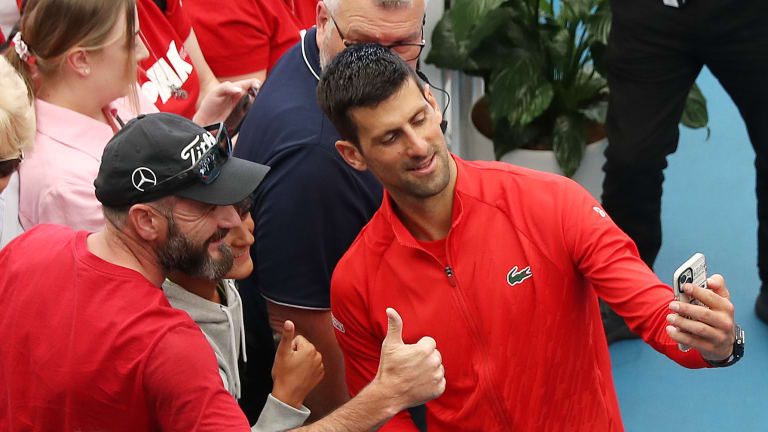Adelaide, Australia
Novak Djokovic needed all of the positive energy he's received in Adelaide to survive Quentin Halys
By Jan 05, 2023Adelaide, Australia
Thanasi Kokkinakis to unwind with WWE on Playstation after three-hour thriller in Adelaide
By Jan 08, 2025Adelaide, Australia
Jiri Lehecka and Jack Draper reach Adelaide International final, Elise Mertens to play Emma Navarro for Hobart title
By Jan 12, 2024Adelaide, Australia
WATCH: Lorenzo Musetti outlines 2024 goals, hopes to be a “great father” after advancing in Adelaide
By Jan 10, 2024Adelaide, Australia
Seeds Barbora Krejcikova, Beatriz Haddad Maia lose in first round at the Adelaide International
By Jan 08, 2024Adelaide, Australia
Novak Djokovic saves match point to defeat Sebastian Korda and capture 92nd ATP title of career in Adelaide
By Jan 08, 2023Adelaide, Australia
Setting Up Sunday: Djokovic, Korda clash; Italy, U.S. battle for United Cup; Teens Gauff, Noskova seek titles
By Jan 07, 2023Adelaide, Australia
Novak Djokovic keeps Daniil Medvedev off balance to win Adelaide 1 semifinal showdown
By Jan 07, 2023Adelaide, Australia
Qualifier Linda Noskova to battle Aryna Sabalenka for Adelaide International 1 crown
By Jan 07, 2023Adelaide, Australia
Novak Djokovic advances to face Daniil Medvedev in Adelaide semifinals
By Jan 06, 2023Novak Djokovic needed all of the positive energy he's received in Adelaide to survive Quentin Halys
A year after being deported from Australia, Novak Djokovic has been greeted with cheers and chants. “Everybody was very welcoming,” said the Serbian.
Published Jan 05, 2023
Advertising
Advertising

“The people that I encountered on the beach or in restaurants or wherever I was kind of roaming around the city or of course here at the tennis, everybody was very welcoming,” said Djokovic.
© Getty Images